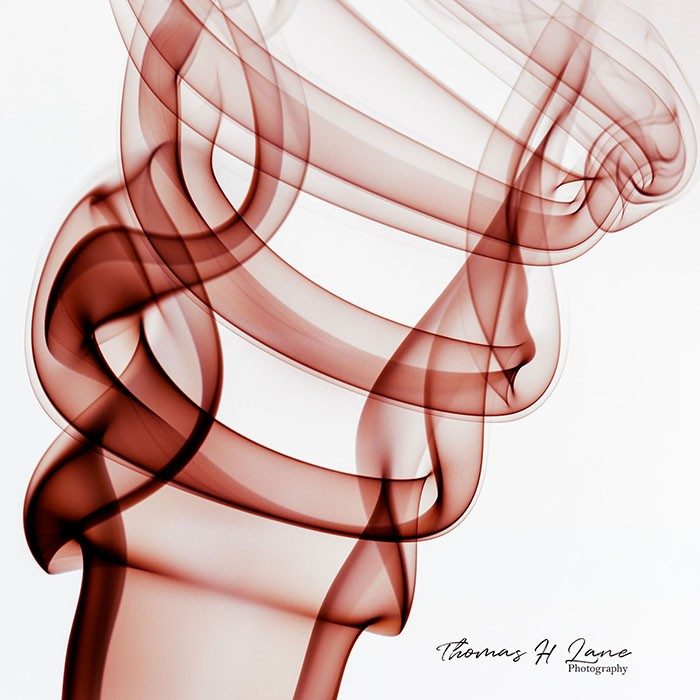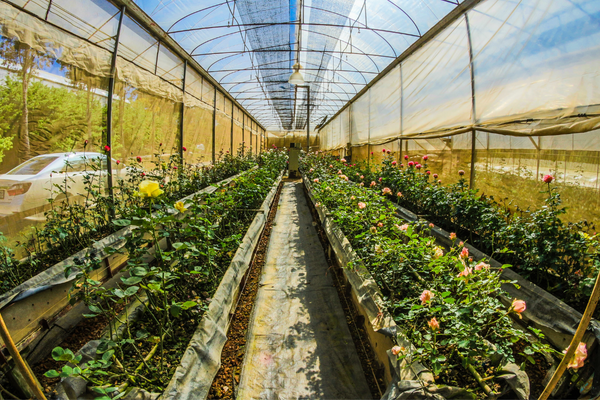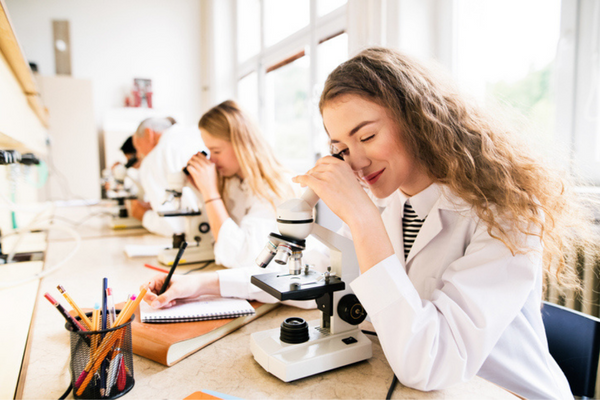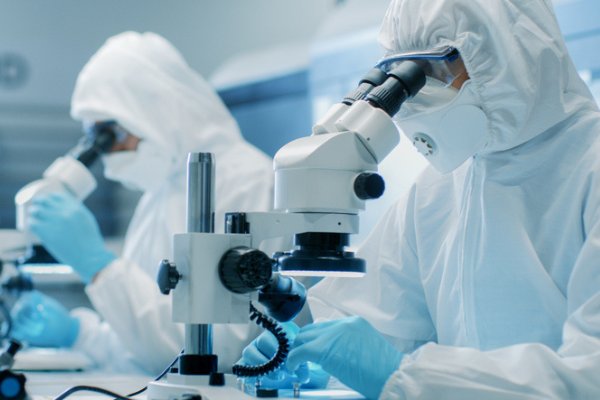
In its April/May 2008 issue, The Southwest Retort (Dallas-Ft. Worth Local Section), published an interview in which you said the following, “The U.S. position in science and engineering as compared to the rest of the world is woefully average and losing ground.” How would you assess the situation today – more than 12 years later?
I fear the short answer to your question is, little has changed. For context, this question was first answered in a dynamic interview after a discussion of measuring attitudes around science and the importance of putting a public face on our discipline. Specifically, we talked about a then recent study called ROSE (Relevance of Science Education), which studied the attitudes of 15-year-old girls and boys toward science.
The conclusions were startling. Although the U.S. did not participate in the ROSE study, we do participate in the international TIMSS assessments and our position was woefully average. The 2020 National Science Board Science & Engineering Indicators report, “The State of U.S. Science & Engineering”, recently concluded that based-on average TIMSS, mathematics and science scores of eighth graders continue to rank in the middle of advanced economies. Further, the data suggest that there has been little to no change in these assessment scores for more than a decade. These data remain a call to action, and I hope that the Society will renew its collective efforts to put a human face on our discipline.
What was the most memorable trip you took during your three-year term as a member of the ACS Presidential succession?
My three years in the ACS Presidential succession were the best years of my life! Every trip was memorable, and not because of the location, but because of the people I had the privilege to interact with. I especially enjoyed talking with chemistry students. Their energy, curiosity, and commitment to our discipline had assured me that our future was in good hands. Interestingly, enough time has passed since serving in the succession that many of the students that I had interacted with have graduated and some have students of their own. To my surprise and pleasure, I am being invited by some of those next generation students to answer their questions and to share why I am proud to be a chemist, improving people’s lives through the transforming power of chemistry!
All that said, one student-based interaction does stand out. After the spring 2009 national meeting, I received a very angry email from a chemistry professor at a small college in Missouri. The department sent three undergraduates to the meeting to present their work: two posters and one platform presentation. Unfortunately, they were scheduled for late afternoon of the last day of the meeting. No one showed up for the presentations. I replied immediately with my apologies and a reminder that we all have given a paper, or two, to the projectionist and symposium chair. I then offered to visit the college to receive their presentations. The offer was instantly accepted, and we agreed that they would present to me, and I would return the favor and present to them.
I cannot tell you how surprised I was when I entered the lecture hall: it was full! These three students had an audience that numbered in the hundreds. Everyone was there, including the college’s administration, faculty, and family who showed up to lend their support. It was incredible, and all three students did an outstanding job presenting and defending their work. I returned the favor and then spent the rest of the day talking with small groups of students about my experiences and working in the discipline. This is one of my favorite memories.
How have your parents influenced your leadership style?
Dwight D. Eisenhower once said, “Leadership is the art of getting someone else to do something you want done because they want to do it.” I could not agree more; leading with inspiration over rigid directions will always yield better outcomes. In my opinion, leading with inspiration requires the mastery of the seven C’s (competency, communication, collaboration, courage, commitment, creativity, and competition).
My parent’s leadership style was more directive than inspirational, but the skills they taught me allowed me to find and develop my own leadership style. I may need to offer a little background. I am one of seven children, six boys and a girl (I was number five), who grew up poor. Neither of my parents completed high school, and both had to work to make ends meet. I learned so much from them about the skill sets required to be a productive contributor to society. I learned how to be courageous, committed, and how to develop competence from my father. He taught me how to work hard and never give up. My mother taught me the importance of effective communication, collaboration and creativity. She taught me about the importance of people and how to care about everyone.
I learned about being competitive mostly from the dinner table! Mastery of these skills have served as the bedrock for my leadership style (coaching/affiliative), which has proved effective during my professional career.
While in high school, you met an “incredible teacher/mentor” named Kneeland Nesius--your chemistry teacher. Is that the model for getting more teens interested in the sciences? And if so, what can be done to make such interactions more intentional and less serendipitous? Or are there better ways to generate this interest?
I love teachers! They have one of the most important jobs on the planet, educating our children for our collective future. Imagine, if you will, that second only to the nourishment of our bodies is the nourishment of our minds! Just as important as maintaining a healthy body is developing and nourishing an active mind. Teachers are the creative chefs charged with this difficult task.
By finding new and creative ways to develop healthy habits and a taste for learning, we can nourish these young minds for a lifetime. Chemistry and the other science-rich subject areas are critical to a balanced intellectual palate. Our children cannot be expected to compete in our global society on just “burgers and fries.” We must find new ways to serve up the STEM disciplines in ways that encourage our children and our communities to experiment -- to try just one bite. Who knows? Some might go back for seconds! Teachers must be significant contributors to the solution for education in the U.S. Therefore, we need to listen to their views and perspectives.
For more than three decades, I have been listening to teachers. The outcomes from these conversations have been extremely enlightening. Teachers are master educators who are passionate and committed to their profession. They are brilliant thinkers with the inside-track on what will really work in a classroom. These conversations have revealed that the solutions to our education woes are not about money. The answers revolve around five common needs -- needs that were universally voiced regardless of country, culture, or other demographics. The five things that teachers consistently asked for are:
- Networks – most teachers teach in isolation. Imagine, as a scientist, working in isolation without access to the knowledge and insights of colleagues!
- Content in context – although master educators, they are limited by their prior experience to place required content into a practical context. How can they teach students about the transforming power of chemistry when they don’t know what a chemist (engineer, physicist, mathematician, or inventor) actually does?
- Support – from parents, fellow teachers, administration, community, business and industry. They long for support to try new ideas, to experiment, and to learn. They need friends and mentors to guide them through real examples of science in everyday life.
- Courage – to try new ideas, experiment, and learn. Some teachers feel they’re under-prepared to teach certain subjects. Others simply need guidance to help them navigate. Some need courage to give science the priority it needs and deserves.
- Time – to teach, network, experiment, and learn. If content delivery is a process, then could we use our collective knowledge of process optimization to “create” time?
Building credible relationships with local schools and teachers is one step toward creating an environment ripe for change. The ACS’s Science Coaches program and the creation of American Association of Chemistry Teachers are two important tools to address some of the needs of our teachers.
A word about my chemistry teacher, Kneeland Nesius. He believed enough in me to allow me to believe in myself. He always took time to answer my naive questions. He helped me with science projects and personally took me to the regional science fairs because my parents could not. He saw beyond my socio-economic context – beyond the aptitude tests and grades – and he saw someone worth believing in. Wouldn’t it be grand if we all believed enough in someone to allow them to believe in themselves?
I once asked Mr. Nesius “Why”—Why did he take the time with me? What did he see in me? And – more important, what should I be looking for in others? His answer continues to teach me. He said he knew all I needed was the opportunity to be successful, so he did his best to provide experiences that might lead to those opportunities. You know, I wanted to make him proud in the 11th grade, and I still do…I invited Mr. Nesius, who is now a professor emeritus, to Washington, D.C. to participate in my installation as president-elect of the American Chemical Society. I am not sure which of us was more proud that night!
What non-technical skills were most responsible for your advancement at Dow? Any thoughts on how chemistry students and early-career chemists can accelerate developing critical non-technical skills?
For correctness, I worked at the former Dow Corning Corporation. Dow Corning was the oldest continuously operated joint venture in the history of business. In 2016 the Dow Chemical Company bought Corning’s share in the corporation, and the Dow Corning Corporation has now been fully integrated into Dow.
To be brief, the 7 C’s! However, I am sure that you are looking for a little more than that. So, I would like to talk about effective oral communication and in particular the power of storytelling. Through effective storytelling, you can engage, inspire, energize, and achieve your objective. If done well, you become an influencer in your organization, and leadership will seek you out because of your ability to deliver factual information in a way that engages your audience’s imagination, which can help them see what could be.
Over the years I have been privileged to have worked with so many brilliant people. Unfortunately, few were skilled in storytelling. All of them could tell you what they did in gory technical detail, but few could help you imagine what could be because of the work. I was reminded of the power of storytelling at budget time. Every year, after presenting my proposals, I got everything I asked for. This is to a very large extent because of effective storytelling; engaging, inspiring, and energizing the audience of what could be, by supporting the work.
One of the greatest compliments I have ever received came from one of our CEO’s, who said something like this, “Lane, not everyone likes what you say, but everyone wants to hear what you think.” This is the power of storytelling, and I would encourage all students and early-career chemist to learn how to tell a story. It will be a differentiator in your career.
Talk about the metaphorical “one that got away”. Is there a project that eluded you during your career at Dow? Why? And if you could return to it, what would you do differently?
During the last decade of my career, my research team was focused on determining if there were any productive biochemistry of silicon. One of the targets we started with was a simple single cell plant, the diatom. Diatoms are pervasive and make up a significant portion of the Earth’s biomass. One of the interesting facts about diatoms is that they process nearly 7 billion metric tons of silicon, as silicic acid and small silicates, every year. They use these silicates to produce a porous but strong cell wall called frustules. These siliceous walls are beautiful - nanostructures assembled over microns! I recommend that you do a Google search for diatom images to get a sense of the diversity and complexity of these little guys.
Although we did unlock several of the diatom’s secrets, I still feel that we were somehow outsmarted by a single cell plant! Not a good feeling. Since then, the diatom’s genome has been sorted and mapped. This genetic information has made it possible to more fully understand some of the biopathways for silicon, not only in diatoms but in a number of other biosystems. Teasing secrets from nature was humbling, but what a great decade of research.
It can be a challenging time to be a mid-career chemist working in industry. Any advice for current-day, mid-career industry colleagues working at places like Dow, DuPont, BASF, P&G, and other large companies, who wish to continue to thrive and advance professionally?
This is the best time in history to be a chemist. We live in a rapidly changing and challenging time that will require innovative solutions to problems that have not yet even been identified. Opportunities abound for those who are willing to focus, refine, and learn the skills required to meet the change we are facing.
Our industry is changing, as it always has, and reorganizations within our industry have become a constant. I know that during my 35-year career, it seems that every 18 to 24 months we either structurally reorganized or changed our management philosophy. As a young chemist, these changes were nerve racking; but with time, I realized that these changes seldom changed what I did, just who I told. This realization allowed me to remain focused on my research and not sucked down into the politics of the day. That is not say that I was never taken out of my comfort zone; I was! However, I refined the skills that needed upgrading and committed to learn everything I needed to be successful.
ACS played a critical role on my career journey. Like most, I often felt I was ready for new challenges before my management did. The excuse most often given for not expanding my role was that I did not have the experience needed for the job. My local section gave me the opportunity to develop some of those important experiences: leading without authority, budgets, project management, and so many more.
In addition to these opportunities to learn and serve, the Society has a tremendous suite of products and services for members who are just starting out or who are ready to make a change in their careers. I would direct those interested in help to www.acs.org/careers for additional information. This site provides information for both job seekers and employers. Job seekers will find career advice, updated salary information, access to continuing education resources, a place to post a resume, and ways to search the job bank. You can even listen to senior professionals talk about their careers and receive a few tips for success through the ACS Careers Industry Forum. The ACS Careers Blog is an interesting place to check out too.
However, one of the most important assets the Society has to offer a job seeker is ACS Network Chemistry Community Online. A great place to visit, especially the Profession and Career Development forums. The ACS Career Navigator is replete with valuable information too! The ACS Leadership Development Systems is a must for building and refining your management skills. It focuses on core leadership competencies and the curriculum includes both e-learning and in person courses.
You have said that you were the first one in your family to attend college. Given that, was your college graduation particularly memorable or celebratory?
No. I did attend my graduation, but my focus was not on celebrating but rather on getting ready for the next step of my journey. I married, moved to Midland, and started a 35-year career at Dow Corning. Sorry, I guess I saved the celebrations for becoming the President-Elect of the world’s largest scientific society dedicated to a single discipline!
What have you learned about yourself during the pandemic?
Well, we introverts have learned that we have been training for a pandemic our whole life! Yes, I miss travel, our annual meetings, and my friends, but the lock down has given me the opportunity to sharpen some of my skills. I enjoy the time alone and being more mindful in all of my daily activities.
How did you and bow ties get to be such an item? When was the last time you wore a necktie?
You may recall, I grew up in a large family with very limited means. Every year during the holiday season my mother would make the needed holiday vest(s), after redistributing last year’s apparel (hand-me-downs). When we all had a vest, my mother would examine the remaining fabric; and if there was enough material, she would make clip-on bow ties. I have pictures of me in bow ties from the age 2 and up until we could convince her that bow ties were no longer cool.
My mother died in December 2007 just before I was installed as President-Elect. I stopped wearing long ties when she passed; and now, in her memory, I only wear bow ties (but not clip-on). I use the short time it takes to tie my bow tie to remember her and all of the wonderful things that she did for us growing up.
Midland, Michigan has been home for a long time. It’s not widely known for its balmy winters. What keeps you there?
Midland is my home. True, winters can be interesting, but Midland is a small town with many of the attributes of a big city. Our Center for the Arts is second to none, and its director has been very successful in bringing serious talent to Midland. We have been able to see performances by likes of Yo-Yo Ma and Sarah Chang for the price of a ticket that costs less than parking in the city. We even entertained Sarah Chang in our home during her stay in Midland. Did you know that her grandmother was a chemist?
We share a symphony conductor (Bohuslav Rattay) with El Paso, TX, and our theater performances are impressive. Being a company town does have its advantages. That said, in 2018 the Business Insider named Midland the most boring city in the state, and I am okay with that! If you love the four seasons, being outdoors, and don’t mind a little snow, Midland is for you. Oh, and the airport is only 20 miles away, and I can be anywhere in just a couple of flights.
You are a serious photographer. Care to share an image with our audience and tell us why you selected this particular image?
I do like to pretend that I am a photographer, and that I am serious, which does not necessarily translate to being any good. 2020 has been an interesting year in my photographic journey. This May, two dams breached, causing massive flooding in Midland and surrounding areas. We lost our house, and I lost a great deal of my equipment, darkroom, and nearly all of my negatives (physical and digital) over sixty years of work gone. So, the image I will share was taken with some new tools in a makeshift basement studio in the middle of this COVID-lockdown. I think the image sums up the year pretty well.
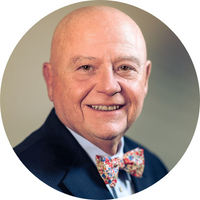
Dr. Lane has served in many positions in the American Chemical Society, including “Director, Global Science and Technology Outreach and Senior Research Scientist, Dow Corning Corporation. Tom has over thirty-three years of research experience in the field of organosilicon chemistry. He received his undergraduate chemistry education at Purdue University, a master’s degree from Central Michigan University and his Ph.D. in physical organic chemistry from the Open University in England.
Tom’s work has allowed him to make significant contributions to the field in the areas of interfacial science, scientific computing, and most recently in the biology and biotechnology of silicon. He holds academic positions in both the US and abroad. He is a Fellow of the Royal Society of Chemistry and president-elect of the American Chemical Society, the largest scientific society in the world. Today, Tom’s primary focus is education and putting a human face to chemistry.” (ACS)
Dr. Lane is also an avid photographer, specializing in photography techniques from the 19th century. He even has a private dark room in his home.
Copyright 2020 American Chemical Society (All Rights Reserved)

